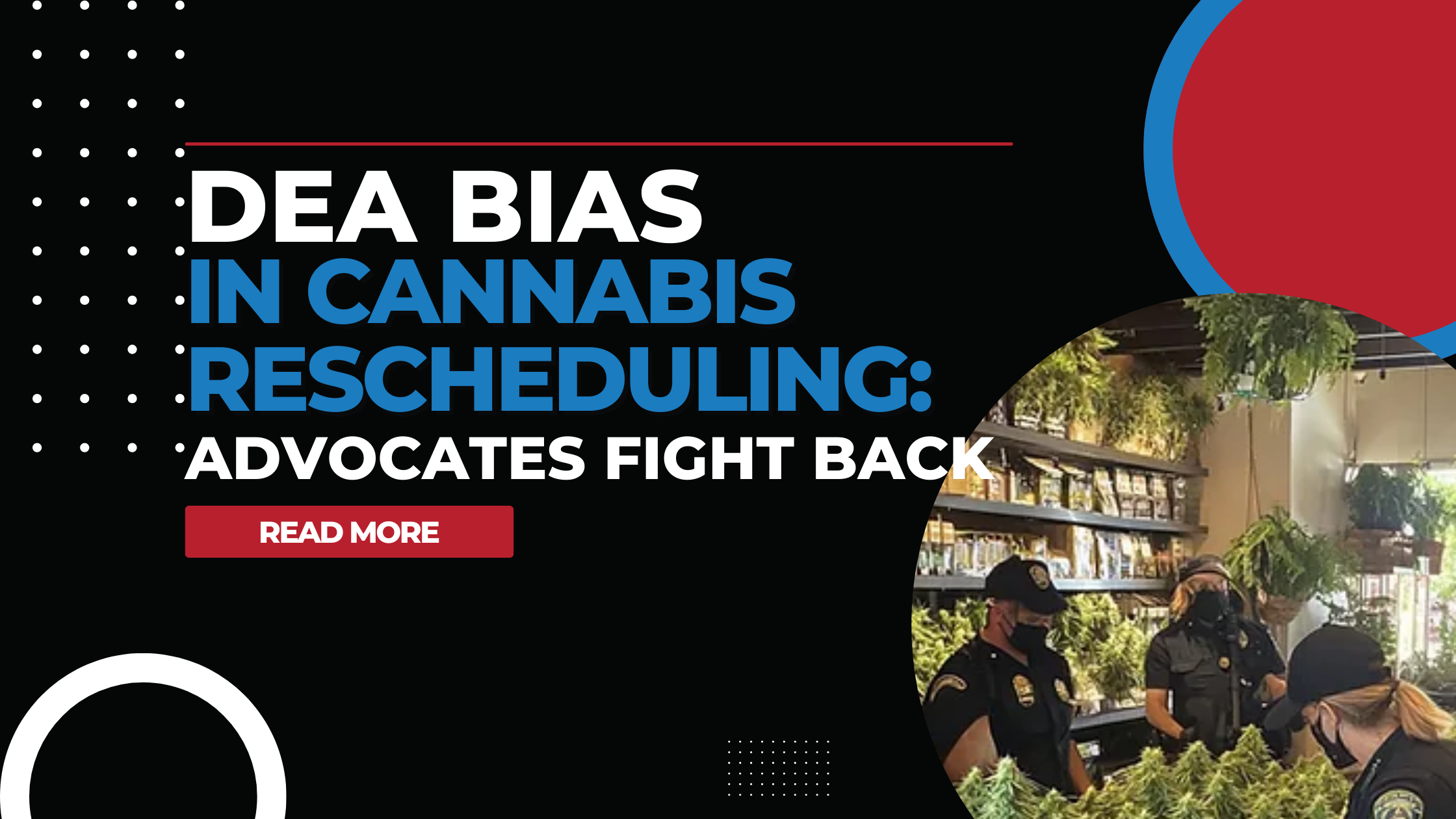
DEA Bias in Cannabis Rescheduling: Advocates Fight Back
The movement for cannabis reform is at a critical juncture, and recent allegations of bias in rescheduling hearings have brought the fairness of the process into question. Cannabis reform advocates are accusing the Drug Enforcement Administration (DEA) of unfairly supporting anti-legalization groups during a federal review that could shift marijuana from Schedule I to Schedule III—an important step toward cannabis legalization.
Advocacy groups Hemp for Victory and Village Farms have filed a motion claiming the DEA collaborated improperly with anti-legalization participants such as Smart Approaches to Marijuana (SAM). These allegations suggest an imbalance in the proceedings, as key professionals, including doctors and researchers, were allegedly excluded from providing testimony.
Federal Judge John J. Mulrooney II, presiding over this case, acknowledged the seriousness of these allegations. While procedural rulings indicate concerning behavior, Judge Mulrooney has allowed both advocates and questioned participants to respond formally. Importantly, advocacy groups like Hemp for Victory were granted a chance to remain involved in the hearings despite not having direct legal standing—a decision that keeps them in the fight for fairness.
The High-Stakes Cannabis Rescheduling Process
For decades, cannabis has been classified as a Schedule I substance, meaning it is treated as a drug with a high potential for abuse and no recognized medical value—a classification it shares with heroin. However, federal health regulators made a groundbreaking recommendation in 2023 to reschedule cannabis to Schedule III. This shift would officially recognize marijuana's medical uses and relative safety.
A change in scheduling would have substantial implications for the cannabis industry, impacting research, taxation, and banking regulations while reducing many legal risks. For legalization advocates, the recommendation is a significant step forward. However, the allegations of bias cast a shadow over the DEA's role in carrying this out.
The DEA’s preparation for substantive hearings, set to kick off in early 2025, now faces increased scrutiny as reform advocates demand transparency. If the agency fails to maintain a balanced and fair process, it risks undermining the progress made on federal cannabis reform and the credibility of its own findings.
Advocates Demand Transparency and Accountability
These allegations underscore the long-standing tension between reform advocates and regulators. Organizations pushing for legalization argue that the DEA has consistently resisted cannabis reform and now appears to be aligning itself with groups that share an anti-legalization agenda. By allegedly favoring these groups and excluding scientific experts, the DEA's approach raises significant concerns about whether the hearings can truly result in unbiased outcomes.
Cannabis advocates argue that rescheduling marijuana has far-reaching consequences beyond legality. For millions of Americans relying on medical cannabis, rescheduling represents an opportunity to legitimize their treatment and protect their access. Reform advocates are urging regulators to hold the DEA accountable for its actions to ensure that this monumental decision is based on facts—not ideology.
How You Can Join the Cannabis Reform Movement
The battle over cannabis rescheduling is more than a bureaucratic process—it affects patients, businesses, and communities across the country. But change doesn’t happen without the collective effort of advocates like you.
Here’s how you can get involved:
- Stay informed: Keep up with the latest developments in cannabis reform news. Share this article with your network to spread awareness.
- Join advocacy groups: Organizations like Hemp for Victory and Village Farms work hard to bring these issues to light. Consider volunteering, donating, or attending their events.
- Contact your representatives: Make sure your elected officials know where you stand on cannabis reform. Personalized appeals can make a big difference in shaping regulatory decisions.
Together, we can push for transparency, fairness, and meaningful progress in cannabis reform. The time for action is now.
Join the advocacy movement for cannabis reform today and help shape the future of fair cannabis regulations.



